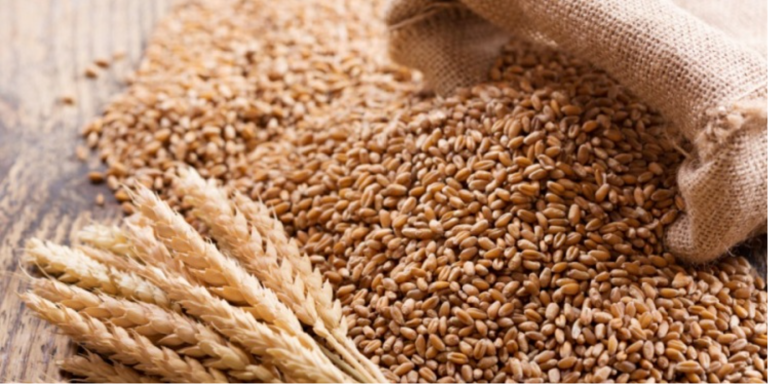The Federal Government has set a target of achieving around 472,000 metric tonnes of wheat production by the end of the dry season wheat farming program.
Mr. Ishaku Buba, the National Project Coordinator for the National Agricultural Growth Scheme and Agro Pocket (NAGS-AP), announced this during the NAGS-AP Stakeholders Review and Planning meeting held on Thursday in Abuja. This target is based on an average yield of four metric tonnes per hectare.
Buba specified that the fifteen states involved in wheat production are Adamawa, Bauchi, Borno, Gombe, Jigawa, Kaduna, Kano, Kebbi, Katsina, Niger, Plateau, Sokoto, Taraba, Yobe, and Zamfara.
He noted stakeholders aim to assess the progress of the 2023/2024 dry season wheat production initiative implemented across these states.
Buba clarified that the 2023/2024 dry season initiative, carried out through the National Agricultural Growth Scheme and Agro Pocket (NAGS-AP) project, centred around four primary crops: wheat, rice, maize, and cassava.
He noted that the program was initiated with a focus on wheat production in the 15 states known for wheat cultivation.
- He said, “The implementation under the 2023/2024 dry season programme was then designed to be carried out in two phases (i.e. wheat value chain from Nov. 15, 2023, to Dec.15, 2023). It will later be extended to Dec. 20, 2023, for Jigawa and Borno while rice, maize and cassava value chains were slated for January – February.”
- “A total of 118,657 hectares were redeemed out of the 123,000 hectares targeted representing 96.47% achieved as of Dec. 21, 2023. We expect that at the end of the implementation period of the wheat production programme, an estimated 472,000 metric tonnes of wheat product at an average yield of 4 metric tons per hectare would be realised,”
He further explained that the choice to commence with wheat production was driven by the time-sensitive nature of the crop, particularly its fixed or pre-determined planting window.
What you should know
- Nigeria has traditionally faced a shortfall in wheat production, depending on imports to satisfy domestic needs.
- However, the conflict between Russia and Ukraine, coupled with the breakdown of the Black Sea grain agreement, resulted in a global supply shortage, leading to an escalation in wheat prices worldwide.
- Data extracted from the National Bureau of Statistics (NBS) foreign trade report for the past four quarters reveals that Nigeria expended approximately N970.22 billion on wheat imports from October 2022 to September 2023.

